1921
100 Years of Women in Irish Politics and Public Life
The Pop-Up Museum showcasing 100 years of Women in Politics and Public Life was launched in December 2018 to mark the centenary of the introduction of voting rights for women.
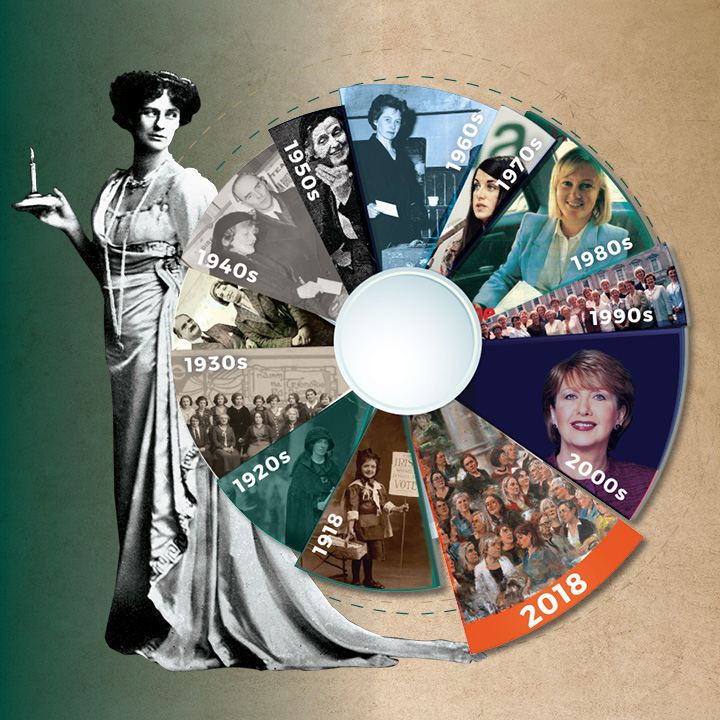
1921
The Pop-Up Museum showcasing 100 years of Women in Politics and Public Life was launched in December 2018 to mark the centenary of the introduction of voting rights for women.

This 100 Year Journey was compiled to highlight the complexity and diversity of women’s experience over the past 100 years.
This is not a definitive list but it is intended that this will be a living document and we encourage people to engage with the project and provide suggestions for inclusion.
The 1970s began with the establishment of the first ‘commission into the status of women’. Dr Thekla Beere (the first female Secretary of a Civil Service Department) was appointed chair. The commission was required ‘to make recommendations on the steps necessary to ensure the participation of women on equal terms and conditions with men in the political, social, cultural and economic life of the country’.
The Social Welfare Act, 1970 provided for a deserted wives allowance. The Court case Murtagh Properties v Cleary ruled that under Article 40.3 of the Constitution women had the right to earn a livelihood and that sex discrimination in employment recruitment policies was unconstitutional.
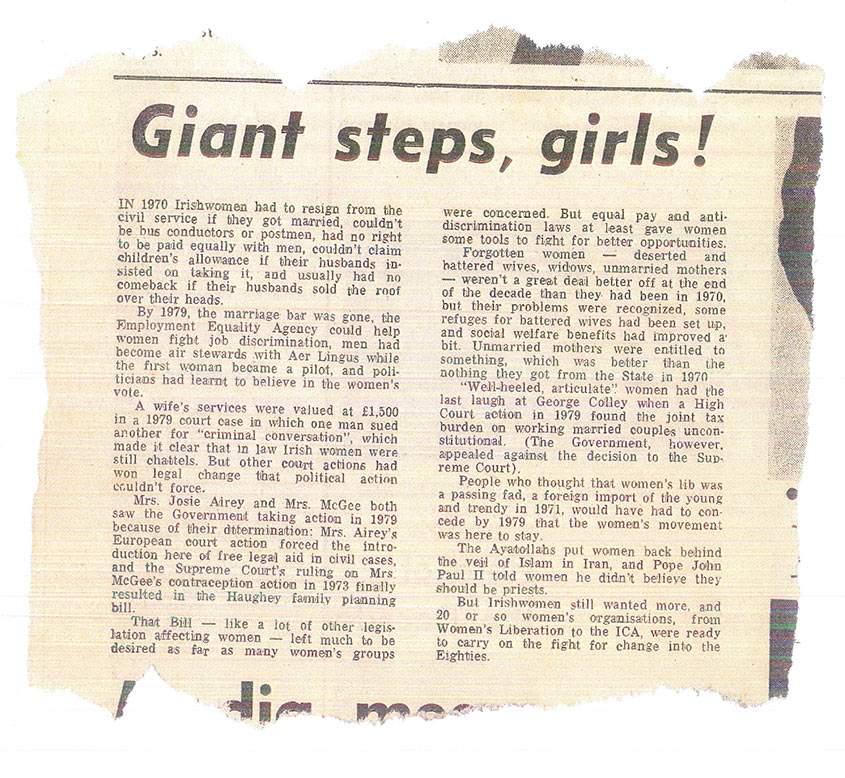
In 1970 the Women’s Progressive Association was formed by Margaret Waugh. Its objective was to increase women’s involvement in public and political life in Ireland through the party system. Senator Mary Bourke was the first President (she became Mrs Robinson later that year).
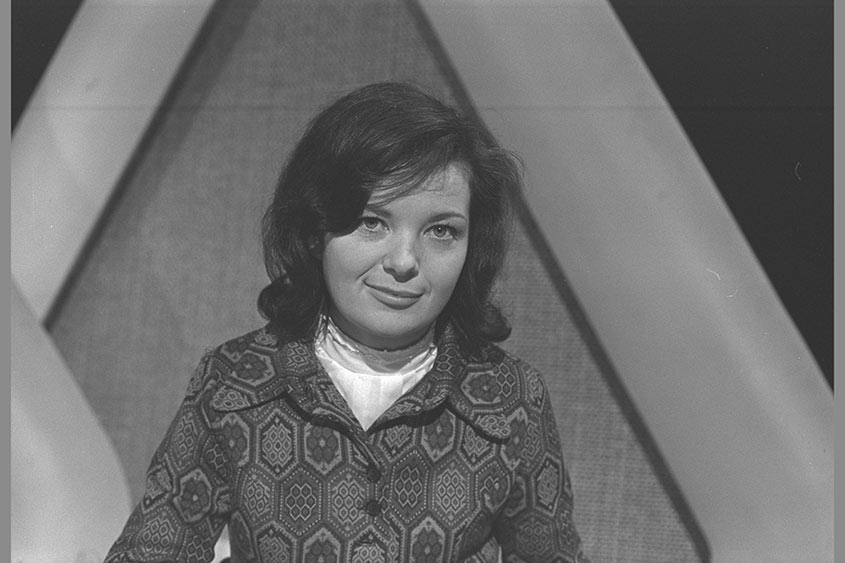
The Irish Women’s Liberation Movement’s early meetings were at Mary Maher’s house. Their Chains or Change document was launched on The Late Late Show in 1971. It demanded equal pay, equality before the law, equal education, contraception, and justice for deserted wives, unmarried mothers and widows. The first public meeting was held in the Mansion House in April 1971.
Likeminded women met and started a focused activism and on the 22 May forty seven of them decided to test one of the prohibitions. Accompanied by the media they made their way from Dublin to Belfast by train to buy condoms and distributed them on their return. A bill to liberalise the law governing the availability of contraceptives published by Senators Mary Robinson, John Horgan and Trevor West was defeated at the first reading in the Seanad.
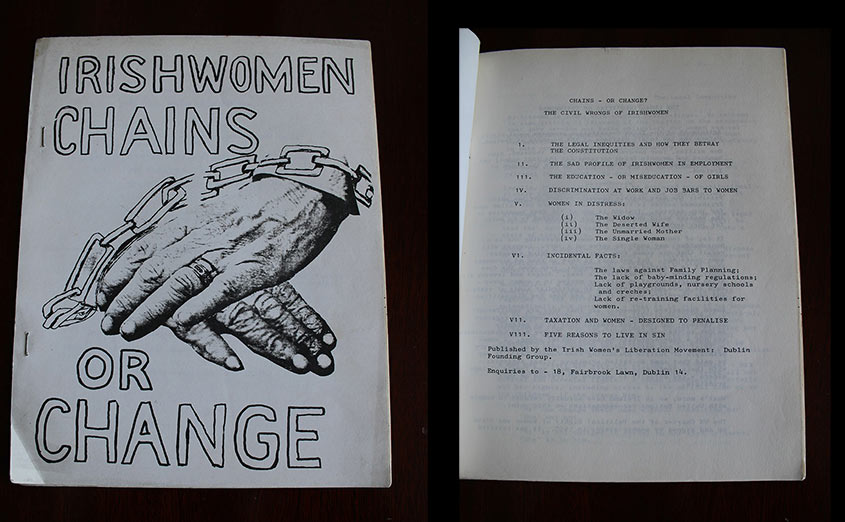
The National Association of Widows (which had been founded in 1967) took to the streets following a meeting in Liberty Hall in November 1972, marching to the Dáil Éireann to highlight the needs of their members.
Many recognised the value of collective lobbying. The Cork Federation of Women’s Organisations amalgamated seventeen local associations and their work led to the first Citizens’ Advice Bureau.
During this decade women’s traditional role of caring for the disadvantaged saw the emergence of a number organisations. Ireland had at the time the lowest expenditure on social services in relation to gross national product in Western Europe. In 1973 the oil crisis compounded existing problems with inflation.
Cherish was founded in 1972 by six single mothers led by Maura O’Dea Richards to provide services to single parents and their children, but also to campaign on their behalf. Mary Robinson was its first President. ADAPT (Association for Deserted and Alone Parents) was formed in April 1973. The same year separated, divorced and single mothers qualified for a social welfare allowance.
AIM (Action Information Motivation) was founded in 1972 by Nuala Fennell and others. It was set up to study laws relating to marriage and to gather data and statistics. By 1974 it had opened an advice centre. The Sexual Liberation Movement (SLM) had its first public meeting in 1973. Women’s Aid was founded in May 1974. It opened its first women’s refuge for battered wives in Harcourt Street in July of that same year.
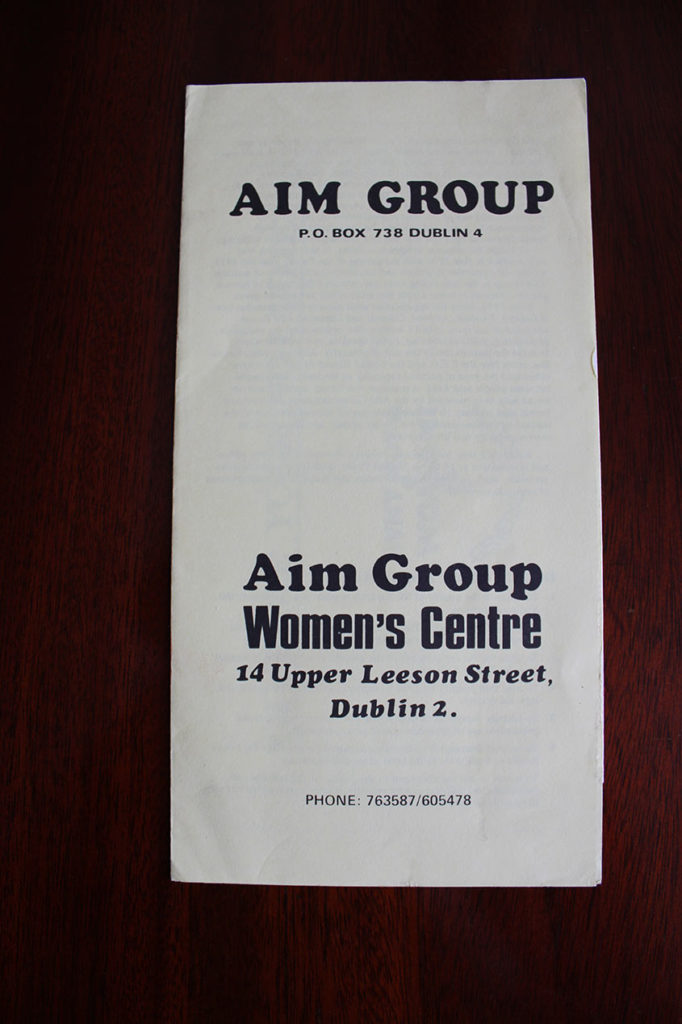
Ireland joined the European Economic Community on 1 January 1973. This ultimately brought about many changes for men and women in the form of new legislation. Article 119 of the Treaty of Rome obliged member states to ensure that men and women received equal pay for equal work. This article was further strengthened by Directive 75/117 and EC Directive 76/207.
The Civil Service (Employment and Married Women) Act, 1973 removed the ban on married women in the civil service, local authorities and health boards. 27% of the total numbers of those employed were women.
In the General Election 1973 women TDs elected included Celia Lynch for Fianna Fáil, Bridget Hogan-O’Higgins and Joan T Burke for Fine Gael and Eileen Desmond for Labour. Outside the Dáil, the Women’s Political Association ‘decried as ridiculous a female representation in Dáil Eireann, which comprises the widows and the daughters of heroes.’
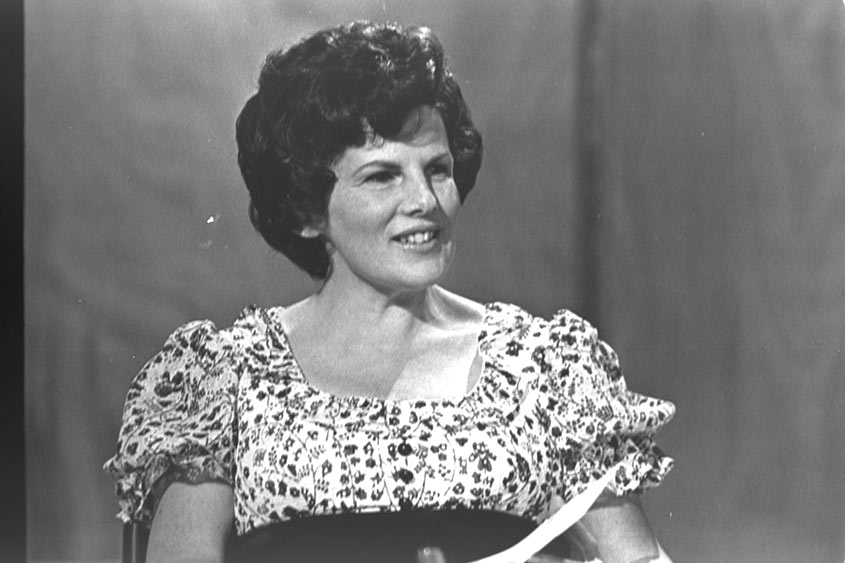
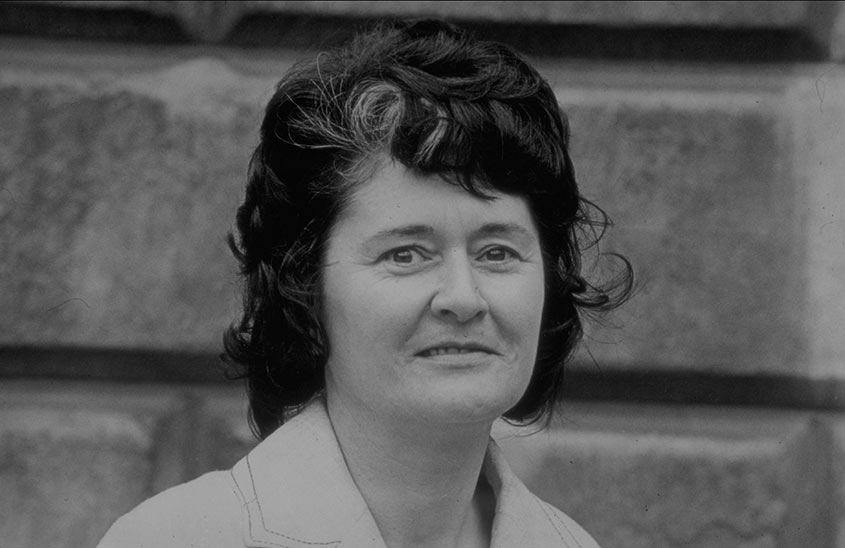
In the Seanad Election of 23 February 1973, Senators Kit Ahern, Mary Robinson and Evelyn P Owens were joined by Mary Walsh (Cultural and Educational Panel) the first woman chair of the General Council of County Councils. During this session Evelyn P Owens became the first woman to hold the office of Leas-Cathaoirleach of the Seanad.
The Commission on the Status of Women’s report was published in May 1973. It made recommendations in the areas of employment, social welfare, taxation, the law, education, household management, family planning and politics and public life. The Council for the Status of Women, an umbrella organisation for women’s groups, was formed to maintain pressure on the Government to implement those recommendations. Hilda Tweedy was appointed its first Chair.
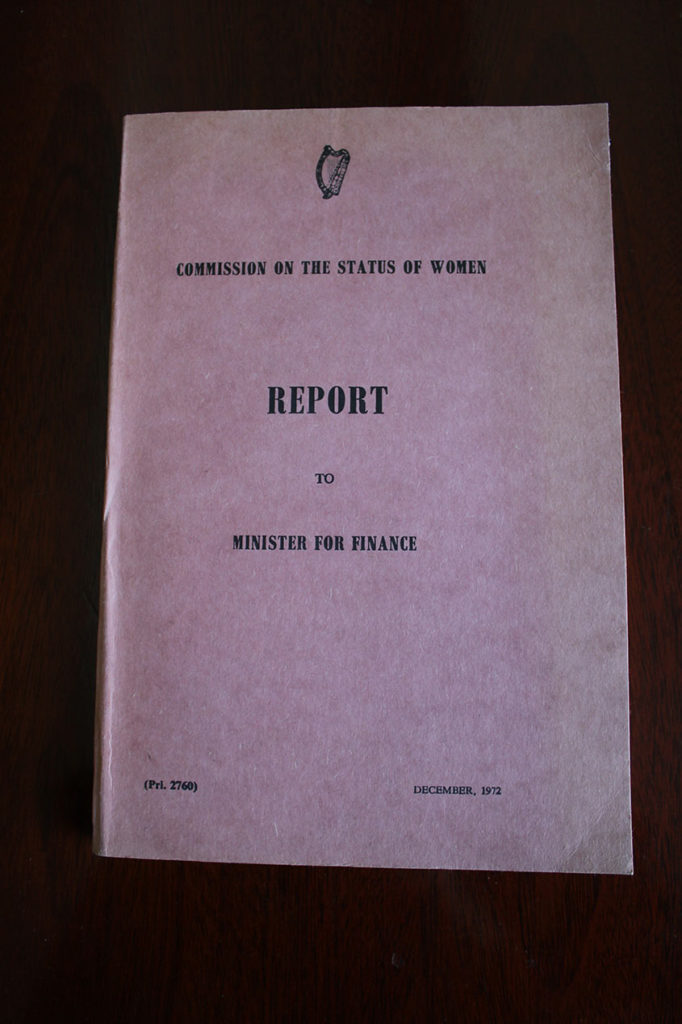
Minister for Labour Michael O’Leary set up the Women’s Representative Committee which was chaired by Eileen Desmond to implement the recommendations. The European Commission announced that equal pay for men and women was mandatory. 3,000 women in the civil service received their first instalment of equal pay in 1973. Equal Pay Campaign guidelines were published for women workers and trade union representatives under the Anti-Discrimination (Pay) Act, 1974.
The Irish Times in 1974 decided to end its ‘Women First’ section as it stated that it was no longer confining ‘women’s affairs to a purely women’s section of the newspaper.’ Elsewhere feminist magazines like Spare Rib were available. AIM (Action, Information, Motivation) findings were published as Irish Marriage – How Are You! (Mercier Press, 1974) and they later issued Can You Stay Married? A self-help guide for women. That year AIM also opened a women’s centre to provide support and advice on legal and marital problems.
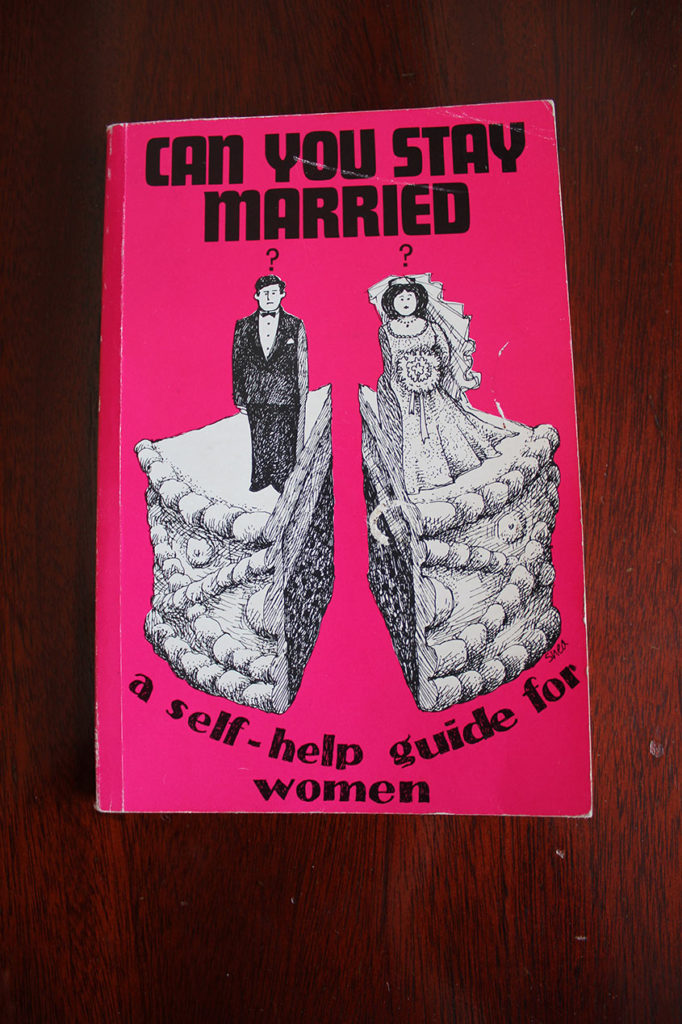
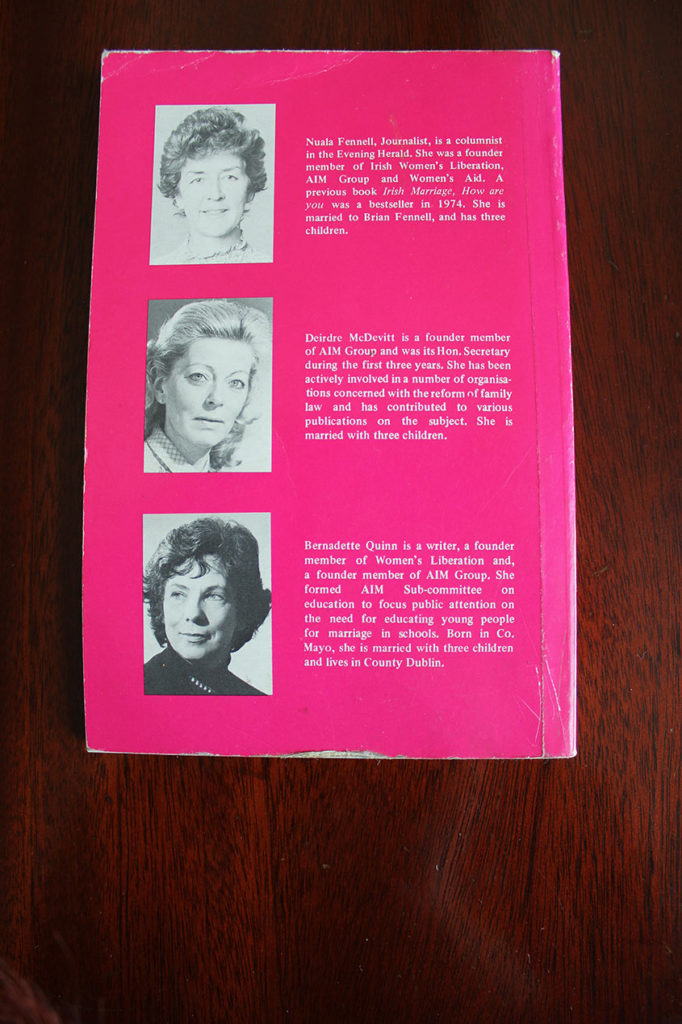
Seanad Éireann refused a second reading of Mary Robinson’s Family Planning Bill. The Taoiseach, Liam Cosgrave led six Fine Gael deputies into the opposition lobby which helped to defeat his own government’s bill for the Control of the Importation, Sale and Manufacture of Contraceptives.
1975 was the UN International Women’s Year. International Women’s Day 1975 was given over to a peace rally. Irish Women United was set up in April 1975 and held its first conference in Liberty Hall in June. Nell McCaffery reported they were a ‘young and radical group of lesbian, left wingers and radicals’ who ‘brought protest back onto the streets, in a zesty display that moved easily between the occupation of the all-male Fitzwilliam Tennis Club and the headquarters of the Federation Union of Employers’.
Banshee magazine, journal of the radical feminist group Irishwomen United was published as members ‘felt it was necessary to start producing a feminist paper as soon as possible’.
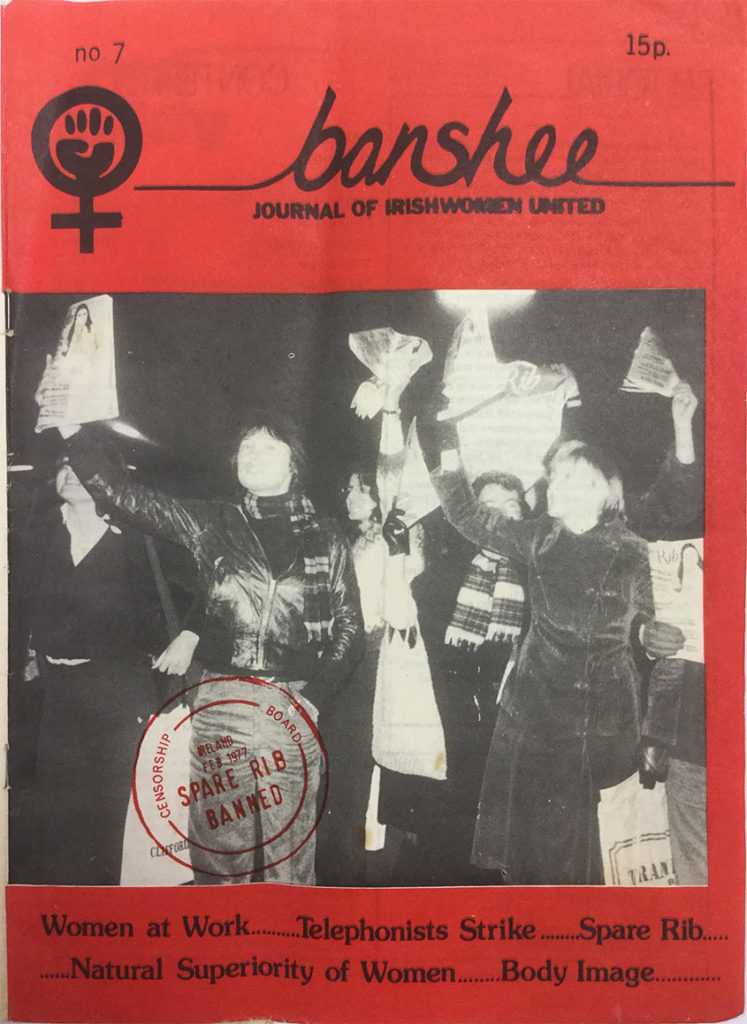
The Irish Women United Charter, published in Banshee, 1976. The magazine was banned by the Censorship Board.
In 1977 Spare Rib was banned, Irishwomen United protested in the national print media calling it ‘an attack on feminism and the women’s movement’.
In 1977 WICCA magazine was first published by a ‘collective’. It was the first magazine that was not attached to any organisation.
The Family Law (Maintaining of Spouses and Children) Act, 1976 gave relief to non-maintained families. It also introduced judicial barring orders for violent spouses.
The Family Home Protection Act 1976 provided for the protection of the family home, so that the owning spouse could not dispose of the family home (including furniture and fittings) without the written consent of the other spouse. Under the Act both partners in a marriage were jointly obliged to support the family.
Separated wives and mothers were recognised as local authority tenants in their own right.
The Juries Act, 1976 provided that women and men were equally eligible for jury service.
On January 27 1976 women, for the first time, were summoned for jury service at the Circuit Court in Trim, County Meath. They did not serve as the cases either did not require a jury or were adjourned.
CAP Contraceptive Action – campaign during 1976 defied the law on the selling of contraceptives.
The Adoption Act, 1976 allowed adoptions in which the natural and the adoptive children were not of the same religion.
The Equal Opportunities Commission (EOC) was set up.
The Employment Equality Agency was established in 1977 and Sylvia Meehan became the head of the agency. As well as ensuring compliance with the Employment Equality Act the Agency also gathered research on gender stereotyping and the need for maternity leave and childcare. The Employment Equality Act (1977) was passed. Under the act it was unlawful to discriminate in employment on the grounds of sex or marital status. The Employment Equality Agency was set up.
At the General Election for the 21st Dáil in June 1977 there were twenty-six women candidates. The Women’s Political Association (WPA) ran a vigorous campaign with ‘Why not a woman’ and ‘Whose your woman?’ slogans. All female candidates were promoted by the WPA.
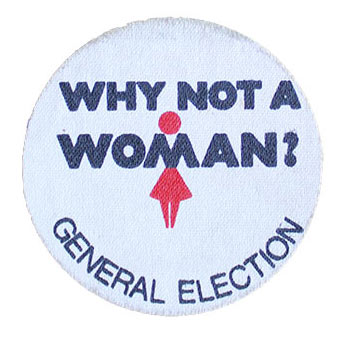
Taoiseach Jack Lynch imposed a number of women candidates rather than using the local convention selection process – these included Mary Harney in Dublin South East and Maírín Quill in Cork City. Neither was elected, nor was Senator Mary Robinson who stood for Labour in Dublin (Rathmines).
Nuala Fennell stood as an Independent candidate for South County Dublin and although she polled over 3,000 first preference votes it was insufficient for her to be elected. The WPA campaign had an impact countrywide, first preference votes for women doubled.
The six women elected were Eileen Desmond (Labour), Joan T Burke (FG), who again topped the poll, and Máire Geoghegan-Quinn (FF). Three new Deputies were elected for Fianna Fáil Kit Ahern (12 years as Senator and the Irish representative to the Council of Europe 1970-1973), Eileen Lemass and Síle de Valera. Fianna Fáil now had a clear majority with 84 seats.
At the Seanad Election of 17 August 1977, Senator Mary Robinson was re-elected to represent the University of Dublin and she was joined by new Senators Tras Honan, Eileen Cassidy, Lady Valerie Goulding, Mary Harney, and Gemma Hussey.
The Taoiseach Jack Lynch’s nominees included Lady Valerie Goulding née Monckton, of the Central Remedial Clinic.
He also selected Eileen Cassidy née Foreman the forty-five year old mother of seven got a call out of the blue to ask her if she would accept the nomination to the Seanad from the Taoiseach.
Mary Harney was nominated from the Education panel. A 24-years old graduate of Trinity College, where she had been the first female Auditor of the Hist, the college society famed for its great orators and debaters, she had represented the Fianna Fáil party at a number of youth conferences.
The first Women’s Conference on Lesbianism was held in Trinity College Dublin.
Employment Equality Seminar ‘Women’s Place in the Irish Economy’ was held in TCD.
A women’s working group with Irish members was set up within the Socialists’ Parties group in the European Parliament.
Lesbians in Cork (L.INC) began to meet on Mondays from January of that year.
In Galway a National Women’s Conference on violence was held.
Margaret MacCurtain and Donncha Ó Corráin Women in Irish Society: The Historical Dimension. It set the standard for the histories that followed.
Associate Editor at Arlen House Eavan Boland judged the first creative writing competition; the resulting work was published in The Wall Reader, 1979.
An estimated 7,000 women took part in a torchlight march against violence in Dublin.
The first elections for the European Parliament took place on 7 June 1979. Síle de Valera (FF) and Eileen Desmond (Lab) were the first Irish women elected to the European Parliament gaining two of Ireland’s fifteen seats.
On 7 November 1979 Myra Barry was elected in the bye-election in Cork North-East. She made history as she and her father represented the same constituency in the same Dáil. In December 1979 Charles Haughey became the new Taoiseach of the 21st Dáil. He appointed Máire Geoghegan Quinn as the 2nd female Minister, sixty years after the first, when she was appointed Minister for the Gaeltacht.
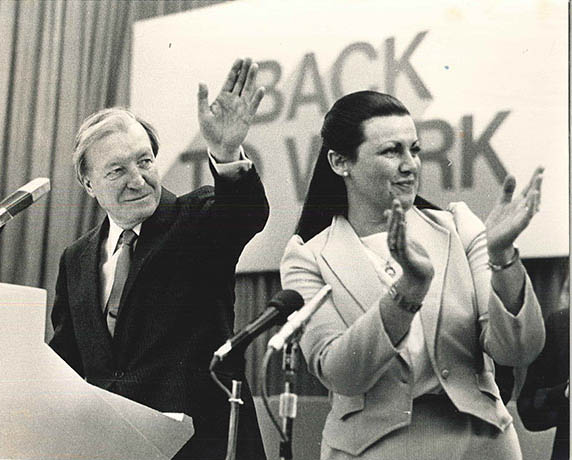
The Health (Family Planning) Act, 1979 was enacted. Under the act contraceptives were allowed for married couples over the age of 18.
In a judgement in the case brought by Mrs Josie Airey against the Government over the lack of free legal aid, the European Court of Human Rights ruled that Ireland had violated articles of the 1950 Human Rights Convention. Following the case, the Government established a non-statutory scheme of legal aid and advice to be administered through law centres.
The Liberation for Irish Lesbians group was formed.
The Women’s Right to Choose group was set up.
RTÉ’s ‘Women Today’ programme started.
For the first time women were elected to every local authority.
The Dublin Rape Crisis Centre was set up.
National LGBT Federation established.
Network was set up for prospective businesswomen.
Mary Kenny and Marie MacMahon forced entry to the men’s toilet of the Dáil in a protest highlighting that women paid for toilet facilities when men did not.
Aer Lingus’s first woman pilot, Gráinne Cronin from Malahide, flew on her first scheduled flight from Frankfurt to Shannon.
Mairín Bean Uí Dalaigh, Pro-Chancellor of the University of Dublin, conferred degrees, the first woman ever to do so in an Irish university.